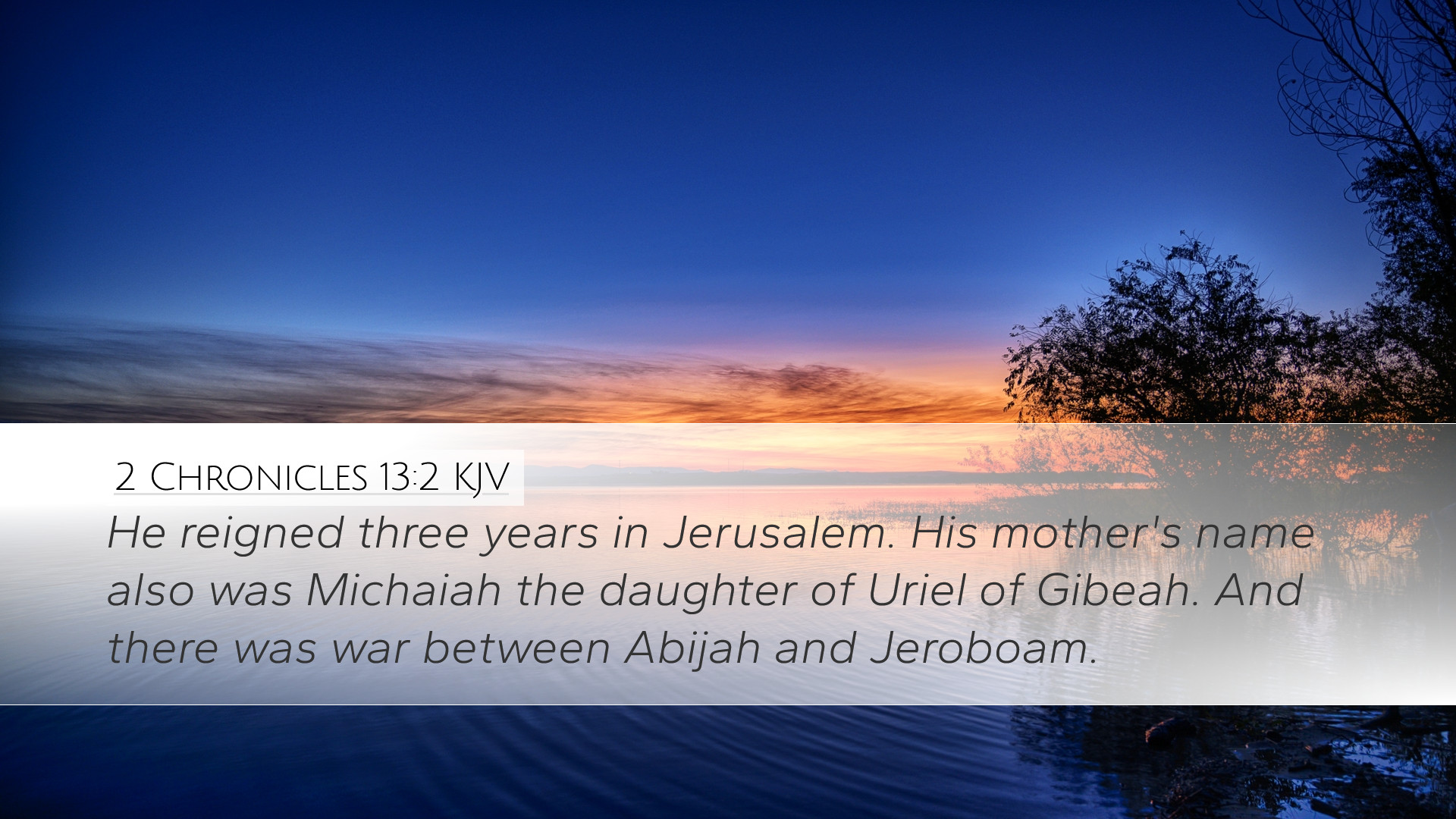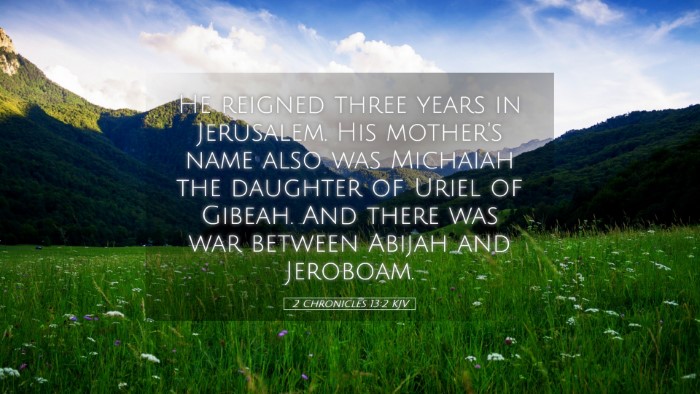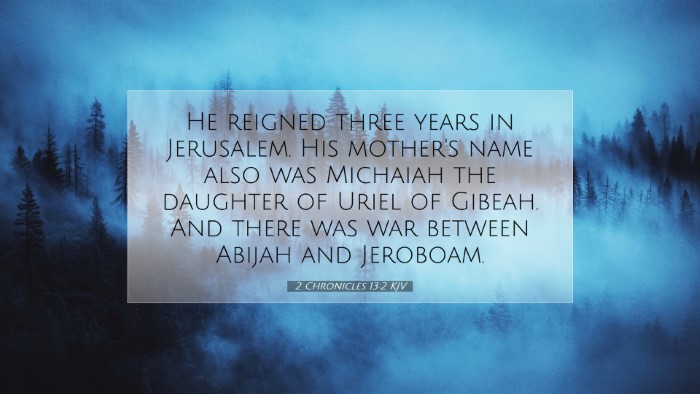Commentary on 2 Chronicles 13:2
Bible Verse: "He reigned three years in Jerusalem. His mother's name was Michaiah the daughter of Uriel of Gibeah. And there was war between Abijah and Jeroboam."
Introduction
The reign of Abijah is a pivotal moment in the history of Judah, encapsulating themes of legitimacy, conflict, and the divine sovereignty that permeates the narrative of the monarchy. This commentary draws on insights from various public domain sources to provide a comprehensive understanding of 2 Chronicles 13:2.
Contextual Analysis
Abijah, the son of Rehoboam, succeeded his father during a tumultuous period characterized by strife between the kingdoms of Judah and Israel. This verse serves not merely as a biographical note but as an introduction to the significant conflicts that defined his rule.
Historical Background
To appreciate Abijah's reign, one must consider the historical backdrop:
- The Division of the Kingdom: Following Solomon's reign, the ten tribes of Israel seceded under Jeroboam, leading to the establishment of two separate kingdoms.
- The House of David: Abijah’s lineage rooted him within the Davidic covenant, which holds significant importance in the narrative of Judah's kings.
- Religious Context: The worship practices established by Jeroboam directly affected the spiritual environment of the Israelite nation, leading to active conflicts with those in adherence to Yahweh in Judah.
Verse Breakdown
“He reigned three years in Jerusalem”
Abijah’s three-year reign is significant for several reasons:
- Short-lived Rule: His brief reign underscores the instability of the throne during this period, reflecting the consequences of ongoing strife and conflict.
- Location of Reign: Jerusalem's designation as his capital distinguishes him from Jeroboam, whose seat of power was in Shechem.
“His mother's name was Michaiah the daughter of Uriel of Gibeah”
This detail emphasizes the importance of familial and tribal connections:
- Maternal Lineage: Michaiah's identity connects Abijah to the tribe of Benjamin, significant in the context of the divided kingdom where tribal affiliations were paramount.
- Cultural Implications: The mention of his mother highlights the influence of maternal figures in the royal lineage and the roles they played in shaping political alliances.
“And there was war between Abijah and Jeroboam”
The conflict with Jeroboam is foundational to understanding the thematic concerns of the text:
- Symbol of the Division: This war represents the continuing conflict between the southern and northern kingdoms, personalizing the larger political drama.
- Spiritual Warfare: Beyond physical confrontation, this war is symbolic of the spiritual battle between true worship of Yahweh and the idolatrous practices established by Jeroboam.
Theological Insights
Abijah’s reign, though short, encapsulates profound theological themes that resonate throughout Scripture:
- God’s Sovereignty: The ongoing tensions showcase God's control over the unfolding narrative of Israel's history, assuring believers of His providential oversight.
- Covenant Faithfulness: The mention of Abijah's lineage emphasizes God's commitment to His covenant with David, serving as a reminder of His enduring promises.
- Judgment and Mercy: The conflicts reflect both divine judgment against sin and an invitation to return to faithfulness and righteousness.
Lessons for Today
For contemporary readers, the passage offers rich lessons:
- The Importance of Legacy: The identities of leaders are often shaped by their families and their fidelity to God's covenant.
- Understanding Conflict: Modern believers can glean insights into the nature of spiritual warfare and the necessity of anchoring themselves in divine truths amidst external battles.
- Divine Perspective in Leadership: Leaders in both secular and spiritual spheres must seek wisdom and guidance from God's Word, recognizing that their decisions affect their communities profoundly.
Conclusion
2 Chronicles 13:2 serves as a multi-faceted lens through which we can examine God's sovereignty, the significance of leadership, and the importance of faithfulness to His covenant. As we reflect on the life of Abijah, may we be encouraged to pursue righteousness, uphold our spiritual commitments, and recognize the divine hand in history both then and now.


